5 start with A start with A
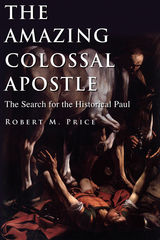
As adults reading the New Testament, we catch glimpses of a very different kind of disciple—a wild ascetic whom Tertullian dubbed “the second apostle of Marcion and the apostle of the heretics.” What does scholarship tell us about the enigmatic thirteenth apostle who looms larger than life in the New Testament? The epistles give evidence of having been written at the end of the first century or early in the second—too late to have been Paul’s actual writings. So who wrote (and rewrote) them? F. C. Baur, a nineteenth-century theologian, pointed persuasively to Simon Magus as the secret identity of “Paul.” Robert M. Price, in this exciting journey of discovery, gives readers the background for a story we thought we knew.
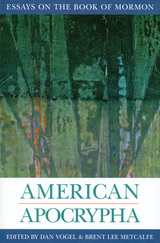
Consider the Book of Mormon, first published in 1830. The nature of this volume—in particular its claim to antiquity—is the theme of nine ground-breaking essays in American Apocrypha. Thomas W. Murphy discusses the Book of Mormon’s view that American Indians are descendants of ancient Hebrews. In recent DNA tests, Native Americans have proven to be of Siberian ancestry and not of ancient Jewish or Middle Eastern descent. Nor is the Book of Mormon a traditional translation from an ancient document, writes David P. Wright, as indicated by the underlying Hebrew in the book’s Isaiah passages. Other contributors to American Apocrypha explore the evolution of ideas in the Book of Mormon during the course of its dictation.
Editors Dan Vogel and Brent Metcalfe have chosen essays by authors who represent a wide range of disciplines and perspectives: Robert Price edits the Journal of Higher Criticism; Thomas Murphy chairs the anthropology department at Edmonds Community College; David Wright teaches Hebrew Bible at Brandeis University. They are joined by Scott C. Dunn; Edwin Firmage, Jr.; George D. Smith; and Susan Staker—all of whom explore what can be reasonably asserted about the Book of Mormon as scripture.
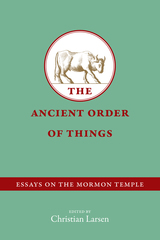
Christian Larsen has assembled a collection of essays that illuminate the role of the temple and its rocky relationship with controversial subjects such as race and marriage. Some temples were built, abandoned, and given new life; others were either constructed for temporary use or never built at all. The nature of LDS temple ordinances is such that what LDS members deem sacred, others dismiss as secret.
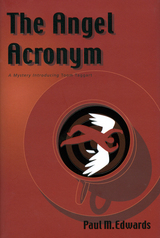
Finding the church archivist dead in the temple complex was somewhat awkward for the RLDS church hierarchy. What was the archivist doing in the temple in the middle of the night and what was he doing with President Fred M. Smith’s declaration of supreme directional control?
For the public relations department, this was all a day’s work—something not so very difficult to explain away with a few carefully worded phrases. That would have been that, had the director of church education, erstwhile philosopher Toom Taggart, not smelled something rotten on the second floor.
Alternately suspenseful and humorous, The Angel Acronym romps through the corridors of religious orthodoxy and the pages of history to probe the perplexities of religious truth, public image, and a bureaucratic mindset.
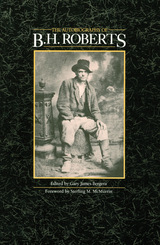
The story-book adventures of Roberts’s life made him a household name during his lifetime. His impassioned speeches incited riots, his reasoned writings defined and codified religious beliefs, and his candid disclosures of Utah history brought him both respect and censure. He is best remembered today as a largely self-educated intellectual. Several of his landmark published works are still in print more than fifty years after his death. His life story, told here in his own words and published for the first time, may well stand as his greatest, most enduring achievement.
For many today, B. H. Roberts is the quintessential Mormon intellectual of the twentieth century. But his theological writings came late in life and his historical views were more subjective than definitive. His autobiography, on the other hand, is a forthright account of the events and acquaintances that contributed to his unique faith and intellectual independence. Troubled by the memory of being abandoned as a child, and of the abusive care of quarrelling and intemperate foster-parents, he survived a stormy youth of poverty and neglect. He describes his nearly ten years as a missionary to the southern United States, his subsequent tenure as an outspoken member of the First Quorum of Seventy, his public opposition to women’s suffrage, and his controversial bid for the U.S. House of Representatives as a Mormon polygamist.
READERS
Browse our collection.
PUBLISHERS
See BiblioVault's publisher services.
STUDENT SERVICES
Files for college accessibility offices.
UChicago Accessibility Resources
home | accessibility | search | about | contact us
BiblioVault ® 2001 - 2024
The University of Chicago Press









